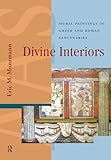Divine Interiors : Mural Paintings in Greek and Roman Sanctuaries / Eric Moormann.
Material type: TextSeries: Amsterdam Archaeological Studies ; 16Publisher: Amsterdam : Amsterdam University Press, [2011]Copyright date: ©2011Description: 1 online resource (268 p.) : 32 color plates, 100 halftonesContent type:
TextSeries: Amsterdam Archaeological Studies ; 16Publisher: Amsterdam : Amsterdam University Press, [2011]Copyright date: ©2011Description: 1 online resource (268 p.) : 32 color plates, 100 halftonesContent type: - 9789089642615
- 9789048513208
- 751.73093918
- online - DeGruyter
| Item type | Current library | Call number | URL | Status | Notes | Barcode | |
|---|---|---|---|---|---|---|---|
 eBook
eBook
|
Biblioteca "Angelicum" Pont. Univ. S.Tommaso d'Aquino Nuvola online | online - DeGruyter (Browse shelf(Opens below)) | Online access | Not for loan (Accesso limitato) | Accesso per gli utenti autorizzati / Access for authorized users | (dgr)9789048513208 |
Frontmatter -- Contents -- Preface -- Introduction -- 1. Paintings Described in Ancient Texts -- 2. Paintings Found in Public Temples of the Greek world -- 3. Paintings Found in Public Temples in Roman Italy -- 4. Paintings in Provincial Roman Temples Across the Alps -- 5. The Eastern Half of the Empire and North Africa -- 6. Painted Shrines Dedicated to the Roman Emperor -- 7. Roman Shrines Housing Non-Roman Cults -- 8. Dura Europos: A Case Study -- 9. Final Remarks -- Bibliography -- Index of Textual Sources -- Index of Names, Places and Subjects -- Colour plates
restricted access online access with authorization star
http://purl.org/coar/access_right/c_16ec
Mighty marble facades, sculptures, and wall paintings played an important role in the decoration of Greek and Roman temples. While the official temples, which were connected with a city or a state, usually had a simple but solemn appearance, the more popular buildings were true multi-colored expressions of religiosity. Scenes from the life of the revered deity, portraits of the supporters and practitioners of the cult, and renderings of plants and animals could transport visitors to these shrines to different worlds. The wall paintings displayed differences in style and taste, but they had the same basic look everywhere. It is striking to see the similarities between temples that were widely separated in the vast Greco-Roman world. Drawing on archaeological remains and texts of antiquity, Divine Interiors fills a void in Greek and Roman studies by exploring a large variety of decorative schemes and fashions all over the ancient world and by shedding light on the devotional practices of worshippers and the use of shrines and temples in daily life.
Mode of access: Internet via World Wide Web.
In English.
Description based on online resource; title from PDF title page (publisher's Web site, viewed 01. Dez 2022)


